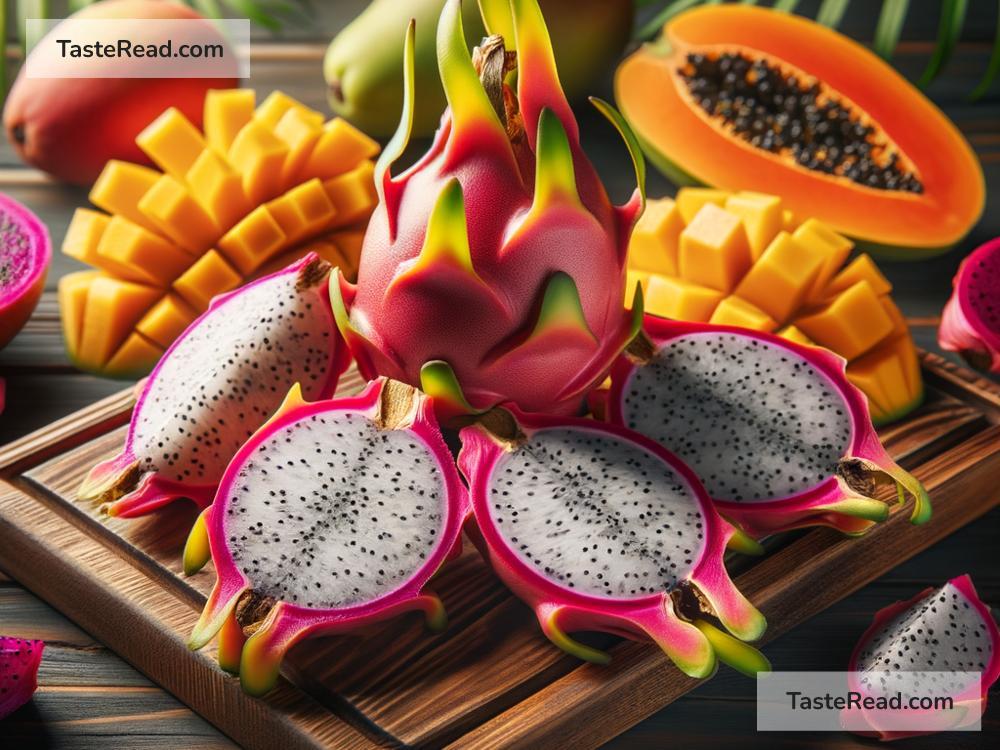Why Fruits Like Dragon Fruit Have Subtle Sweetness
Fruits come in many shapes, colors, and flavors, and they are one of nature’s healthiest snacks. Some fruits are rich and sweet, like mangoes or bananas, while others have a milder, more delicate flavor, like dragon fruit. If you’ve ever tried dragon fruit, you may have noticed its subtle sweetness that’s refreshing but not overwhelming. This quality makes dragon fruit unique and perfect for those who enjoy light flavors. But why do fruits like dragon fruit have such a gentle sweetness? Let’s explore the science of sweetness, the nature of dragon fruit, and how this flavor makes it special.
Understanding Sweetness in Fruits
The sweetness of fruit comes from natural sugars, mainly fructose, glucose, and sucrose. These sugars develop as the fruit grows and ripens on the plant or tree. They give us energy and combine with the fruit’s natural acids, vitamins, and fiber to create an appealing flavor.
Every fruit has a unique balance of sugar and acid. Fruits with higher sugar and lower acidity, like grapes or melons, taste very sweet. On the other hand, fruits with lower sugar and higher acidity, like lemons, taste sour. Dragon fruit falls somewhere in the middle, with a lower amount of natural sugar compared to sweeter fruits. This is why its taste is more subdued.
Dragon Fruit: A Tropical Wonder
Dragon fruit, also known as pitaya, is a tropical fruit that comes from a cactus plant. It has a striking appearance with bright pink, yellow, or red skin and tiny green spikes that resemble dragon scales. The inside of the fruit is equally fascinating—it’s white or reddish-purple with tiny black seeds scattered throughout.
Although dragon fruit looks exotic, its flavor is delicate and mild. Many describe its taste as a blend of kiwi and pear with a hint of sweetness. Some people even find it slightly bland, but this subtle profile is part of its charm. It’s refreshing, hydrating, and perfectly suited for smoothies, salads, or simply snacking.
Why is Dragon Fruit Less Sweet?
Fruits develop their sweetness depending on several factors: genetics, growing conditions, and ripeness. Dragon fruit tends to have naturally lower sugar levels compared to sweeter fruits like apples or pineapples. Let’s take a closer look at why dragon fruit has a gentle sweetness.
-
Low Sugar Content: Dragon fruit contains around 7-8 grams of sugar per serving, which is fairly low compared to fruits like pineapple, which has 16 grams per serving. This lower sugar content contributes to its mild flavor.
-
Water-Rich Composition: Dragon fruit is packed with water, making it incredibly hydrating. Because it’s so watery, its natural sweetness becomes diluted, resulting in a softer taste instead of an intense one.
-
Balanced Acidity: While some fruits have a tart bite due to higher levels of acidity, dragon fruit is neutral in flavor. Its lower acid level reduces the sharpness you might experience when eating citrus fruits like oranges or lemons.
-
Genetics of the Plant: The type of fruit and its genetic makeup play a role in determining how sweet it will taste. Dragon fruit’s variety has evolved to have a milder flavor compared to sweeter tropical fruits. It’s less about attracting animals to spread its seeds and more about growing successfully in harsh conditions, as it’s native to dry, desert-like areas.
The Appeal of Subtle Sweetness
While some people love sugary fruits, others prefer ones with a lighter flavor like dragon fruit. Its subtle sweetness has several benefits:
-
Ideal for Health-Conscious Eaters: Since dragon fruit has less sugar and calories, it’s perfect for people looking for low-sugar snacks or those managing conditions like diabetes. You get to enjoy a delicious fruit without worrying about a sugar spike.
-
Refreshing and Hydrating: The water content of dragon fruit makes it incredibly refreshing, especially in hot weather. When paired with its gentle flavor, it’s like eating nature’s version of a light dessert.
-
Easy to Mix with Other Foods: The mild taste of dragon fruit makes it versatile. Whether you blend it with sweeter fruits for a smoothie or mix it into a salad, it complements other flavors without overpowering them.
-
A Unique Experience: For adventurous eaters, dragon fruit is a fun fruit to try. Its striking appearance combined with its soft flavor makes it a memorable treat.
Conclusion
Fruits like dragon fruit remind us that sweetness doesn’t always have to be bold and sugary to be enjoyed. Its subtle flavor is a result of its natural sugar levels, high water content, and balanced acidity. While it’s not the fruit for those who crave strong sweetness, dragon fruit shines in its own way—refreshing, nourishing, and gentle.
Next time you’re looking for a healthy snack or a splash of color in your meal, consider dragon fruit. Its subtle sweetness might surprise you, and its exotic look is sure to brighten your day. Sometimes, the quiet flavors are the ones that leave the biggest impression.


